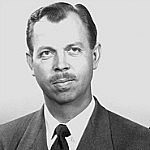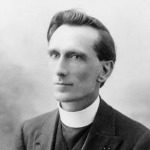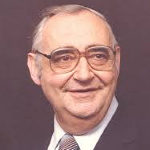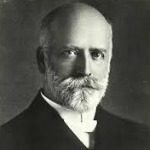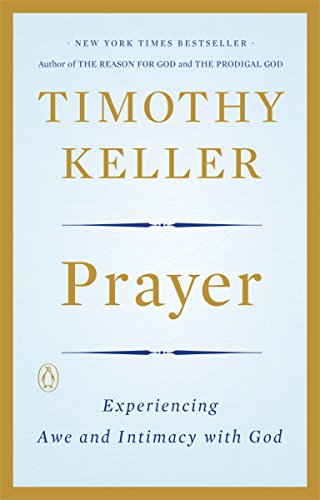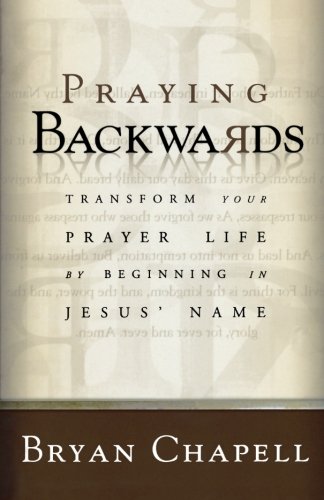Quotes about Prayer-Purpose
Prayer gives you opportunity to praise God and to request His divine intervention in your life and/or the lives of others. Prayer allows you to glorify His Name and also provides an avenue for you to be filled with joy.
Self-Confrontation Manual, Lesson 3, Page 9, Used by Permission of the Biblical Counseling Foundation.
Prayer will make a man cease from sin, or sin will entice a man to cease from prayer.
A Puritan Golden Treasury, compiled by I.D.E. Thomas, by permission of Banner of Truth, Carlisle, PA. 2000, p. 211.
Believers do not pray with the view of informing God about things unknown to Him, or of exciting Him to do His duty, or of urging Him as though He were reluctant. On the contrary, they pray in order that they may arouse to seek Him, that they may exercise their faith in meditating on His promises, that they may relieve themselves from their anxieties by pouring them into His bosom; in a word, that they may declare that from Him alone they hope and expect, both for themselves and for others, all good things.
Commentary on a Harmony of the Evangelists, Matthew, Mark and Luke, Eerdmans, n.d., p. 314.
Whenever the insistence is on the point that God answers prayer, we are off the track. The meaning of prayer is that we get hold of God, not of the answer.
If God sees that my spiritual life will be furthered by giving the things for which I ask, then He will give them, but that is not the end of prayer. The end of prayer is that I come to know God Himself.
Prayer does not equip us for greater works – prayer is the greater work.
[We pray] not to inform God or instruct Him but to beseech Him closely, to be made intimate with Him, by continuance in supplication; to be humbled; to be reminded of our sins.
Prayer is not a spiritual crowbar or jackhammer that pries open God’s willingness to act but a means by which Christians open themselves up to God – to grasp God’s will and be grasped by it.
Prayer is the means by which God’s infinite wisdom, infinite power, and perfect purpose are brought together to accomplish His will. You can’t be saved without believing. You can’t be sanctified without obeying. And you can’t enjoy the goodness of God in this life without participating in His unfolding purpose through your prayers and through your service to Him.
“Pray Boldly.” The sermon originally appeared (https://www.gty.org/library/sermons-library/42-157/pray-boldly) at www.gty.org. © 1969-2008. Grace to You. All rights reserved. Used by Permission.
I do not know what the reader’s particular idea on this subject may be, but I would like to say that if you believe you can change the mind of God through your prayers, I hope you are using some discretion. If that is the power you have, it is certainly a most dangerous thing. Surely God does not need our counsel in order to set up what is desirable. Surely God, whose knowledge penetrates all minds and hearts, does not need to have us intervene to tell Him what He ought to do. The thought that we are changing the mind of God by our prayers is a terrifying concept.
Prayer is not appointed for the furnishing of God with the knowledge of what we need, but it is designed as a confession to Him of our sense of the need. In this, as in everything, God’s thoughts are not as ours. God requires that His gifts should be sought for. He designs to be honoured by our asking, just as He is to be thanked by us after He has bestowed His blessing.
Could it be that many of our problems with prayer and much of our weakness in prayer come from the fact that we are not all on active duty, and yet we still try to use the transmitter? We have taken a wartime walkie-talkie and tried to turn it into a civilian intercom to call the servants for another cushion in the den… We see repeatedly in Scripture (Mt. 9:38; Lk. 21:34-36; Rom. 15:30-31; Eph. 6:12, 17-19; Col. 4:3; 2 Thes. 3:1) that prayer is a walkie-talkie for warfare, not a domestic intercom for increasing our conveniences.
Desiring God, 1996, p. 152, Used by Permission, www.desiringGod.org. Get this book!
In prayer we admit our poverty and God’s prosperity, our bankruptcy and His bounty, our misery and His mercy. Therefore, prayer highly exalts and glorifies God precisely by pursuing everything we long for in Him and not in ourselves.
John Piper Desiring God, 1996, p. 156, Used by Permission, www.desiringGod.org. Get this book!
The purpose of prayer is not for the disciple to bring information to God; the purpose of prayer is for the disciple to experience intimacy with God.
Taken from Follow Me by David Platt. Copyright © 2013 by David Platt. Used by permission. Website: Radical.net. Page 112.
Although we must insist that, because of who we are and who God is, our prayers do not change God’s mind, it is right for us to understand that God has ordained that prayer "changes things." The design of prayer is not that the immutable will of God be altered, but that His will may be accomplished in His own good time and way. Our prayers are not intended to change the purpose of God or to move him to create new purposes. God has not only decreed the end of all things, but He also has decreed the means to reach that end. Thus, it is improper for us to say that, because God is sovereign and is in control of all things, certain things will happen whether we pray or not. That must be absolutely rejected because God has ordained that prayer be the means to accomplish His purpose.
By fasting, the body learns to obey the soul; by praying the soul learns to command the body.
A Puritan Golden Treasury, compiled by I.D.E. Thomas, by permission of Banner of Truth, Carlisle, PA. 2000, p. 79.
Prayer is yearning to see not my will, but God’s will done. Prayer is about aligning myself with Him. Prayer is about knowing that God has ordained all things – not just the end, but also the means by which they come about. And it’s about knowing that my prayers are part of those means.
Sermon, Application Of The “Lord’s Prayer,” Luke 11:5-13, April 7, 2019.|Sermon, Application Of The “Lord’s Prayer,” Luke 11:5-13, April 7, 2019.
God delights to give His children “every good…and every perfect gift” (Jas. 1:17), but if the physical blessings we desire were always and immediately given at our request, God would become nothing more than a big slot machine in the sky, and our prayers would become meaningless tokens mechanically fed into an apparatus as a means to achieve our whims with which we have no relationship. God would receive no glory, and we would pray our souls into a black hole. Whether God answers our prayers with a “no” or “not yet” or “yes,” His goal is to draw us closer to Himself in a relationship so that we might view Him as our ultimate reward.
God has a fixed will. The world is not governed by theoretical possibilities. Yet we are commanded to pray, and our prayer has value. It’s woven into His sovereign will. We joyfully bring our desires to the Father. However, we submit ourselves to Him for the outcome. Like Jesus in the Garden, we pray His will, not our will be done.
Prayer does change things, all kinds of things. But the most important thing it changes is us.
Prayer girds human weakness with divine strength, turns human folly into heavenly wisdom, and gives to troubled mortals the peace of God. We know not what prayer can do.
For us as sinful men and women, prayer is not designed to align God with our will, but to align our will with God. Prayer is not to make God more like us but to make us more like God. It should firm up the muscles of our faith.
The chief purpose of prayer is that God may be glorified in the answer.
1. Prayer is a form of serving God (Luke 2:36-38). We pray because God commands us to pray (Philippians 4:6-7).
2. Prayer is exemplified for us by Christ and the early church (Mark 1:35; Acts 1:14; 2:42; 3:1; 4:23-31; 6:4; 13:1-3). If Jesus thought it was worthwhile to pray, we should also.
3. God intends for prayer to be the means of obtaining His solutions in a number of situations:
a. Preparation for major decisions (Luke 6:12-13).
a. Overcoming demonic barriers in lives (Matthew 17:14-21).
b. The gathering of workers for the spiritual harvest (Luke 10:2).
c. The gaining of strength to overcome temptation (Matthew 26:41).
d. The means of strengthening others spiritually (Ephesians 6:18-19).
4. We have God’s promise that our prayers are not in vain, even if we don’t receive specifically what we asked for (Matthew 6:6; Romans 8:26-27).
5. He has promised that when we ask for things that are in accordance with His will, He will give us what we ask for (1 John 5:14-15).
